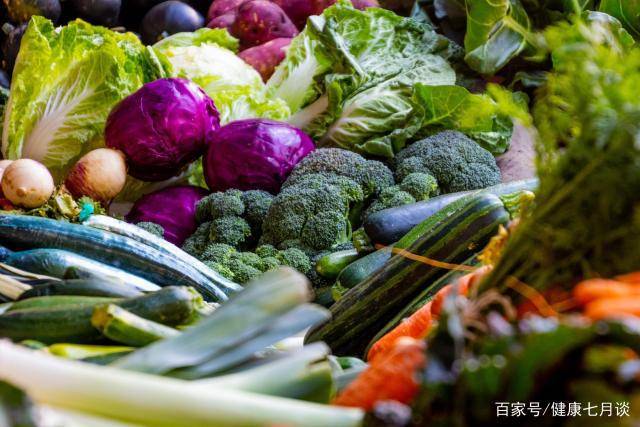Gout, also known as the “rich man’s disease,” was a disease only afflicting the wealthy and powerful in ancient times. Many historical figures, from ancient to modern times, have suffered from this disease: Bai Juyi, Kublai Khan, Darwin, Newton, Qin Shi Huang… These individuals all acquired the “rich man’s disease” due to their luxurious lifestyles and unrestricted eating habits. Nowadays, as living standards rise and diets improve, the prevalence of “rich man’s disease” is increasing, with even individuals born after 1990 falling victim and becoming the main force in the battle against gout!
Many gout sufferers are advised by doctors to control their diet, especially by reducing consumption of seafood, animal organs, and alcohol, and increasing intake of fruits and vegetables. For the sake of their health, many people have to start refraining from certain foods, avoiding them completely and silently embarking on a “grass-eating” lifestyle. However, after consuming vegetables for a while, they discover that their gout symptoms are not alleviated but rather worsening. Why is this happening?
While most vegetables have low purine content and can help reduce the body’s uric acid levels to some extent, the purine content in these vegetables is not significantly lower than that in meat. Eating these vegetables will not alleviate your gout; in fact, it might make it worse! The following vegetables should be consumed sparingly!
Asparagus
Southerners particularly enjoy eating asparagus for its freshness and rich content of vitamin B and other trace elements, which are beneficial for health. In particular, asparagus contains a high amount of selenium, which plays a crucial role in enhancing immunity and delaying aging. However, 100g of asparagus contains a high purine content of up to 150 mg, categorizing it as a high-purine food. Long-term consumption of asparagus by gout patients will not only fail to alleviate pain symptoms but also exacerbate the condition. Therefore, if you have gout, it’s best to avoid eating asparagus!
Nori Seaweed
Gout patients who fancy nori seaweed must control their intake and avoid overconsumption. Dried nori seaweed contains 400mg of purine per 100g, classifying it as a high-purine food. Although nori seaweed is mostly consumed in soup form nowadays, reducing the purine content, overall, it still remains relatively high. Therefore, gout patients who love nori seaweed should consume nori seaweed soup in moderation.
Processed nori seaweed products, such as instant nori seaweed and instant seaweed, often contain a large amount of salt, which can significantly impact uric acid levels in the body. Hence, it is advisable to limit the consumption of these foods!
Mushrooms
Mushroom-based foods are popular for their smooth texture, appearing frequently in stir-fries, soups, and hot pots. However, did you know that most mushrooms are high-purine ingredients? For every 100g, enoki mushrooms contain 260mg of purine, shiitake mushrooms contain 306mg, king oyster mushrooms contain 318mg, crimini mushrooms contain 584mg, shimeji mushrooms contain 498mg, lion’s mane mushrooms contain 397mg, pine mushrooms contain 564mg, especially enokitake mushrooms contain a high purine content of 732mg per 100g, and coral mushrooms contain 906mg of purine. Consuming these foods is akin to consuming animal organs and will not help alleviate gout; therefore, gout patients are advised to avoid them.


